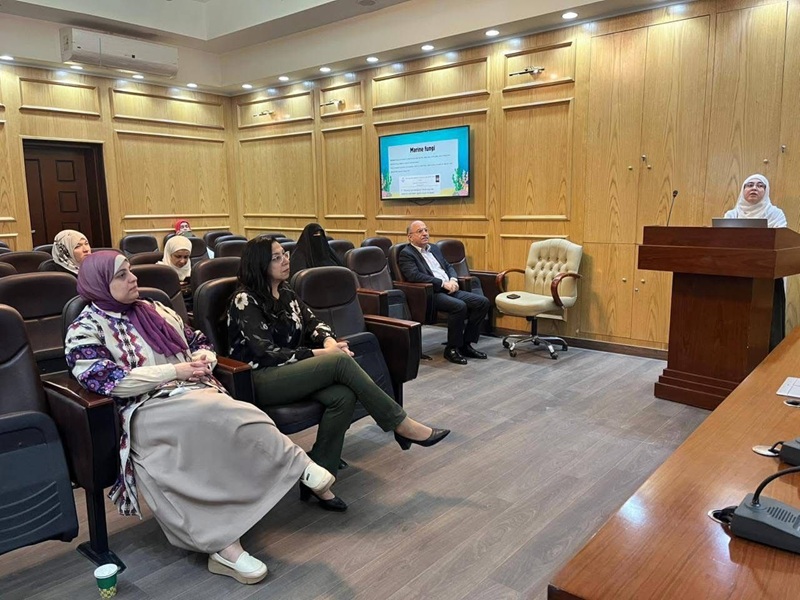The Faculty of Pharmacy organizes the third seminar as part of the cultural season under the title: In the Grip of the Ocean: A Wonderful Journey into Marine Life
The Community Service and Environmental Development Affairs Sector at the Faculty of Pharmacy, Ain Shams University, held the third seminar of the cultural season for the 2025/2026 academic year, titled ‘In the Grip of the Ocean: A Wonderful Journey into Marine Life,’ under the patronage of Prof. Mohamed Diaa Zain El-Abedeen, University President; Prof. Ghada Farouk, Vice President for Community Service and Environmental Development; and Prof. Rehab Osman Ahmed, Acting Dean of the Faculty, and under the supervision of Prof. Rola Milad Labib, Acting Vice Dean for Community Service and Environmental Development.
Dr. Yomna Nagy Hussein, Lecturer of Microbiology and Immunology at the Department of Microbiology and Immunology, Faculty of Pharmacy, highlighted the richness and importance of marine life, which covers 72% of the Earth’s surface, produces approximately 70% of the world’s oxygen, and hosts around 80% of the planet’s biodiversity.
She emphasized the role of marine microorganisms and fungi as rich sources of promising bioactive compounds used in medicine, agriculture, and modern therapies. Dr. Yomna provided a detailed explanation of various marine habitats, from sunlit surface waters to deep saline pools and coral reefs.
The lecture also explored unique adaptations of marine organisms, such as bioluminescence and specialized olfactory senses in certain animals like sharks, along with the extensive diversity of microbes in sediments and extreme environments, which hold vast research potential, including the discovery of antibacterial and anticancer agents and enzymes with advanced applications.
Dr. Yomna addressed the threats facing marine life, including overfishing, destructive practices, and pollution, stressing the need to raise awareness, support conservation efforts, expand marine protected areas, reduce pollution, and combat illegal fishing.
The seminar concluded by highlighting the importance of international collaboration to enhance marine sustainability and restore ecosystems by 2050, while continuing to seek innovative solutions in the field of marine biotechnology.


.svg)

